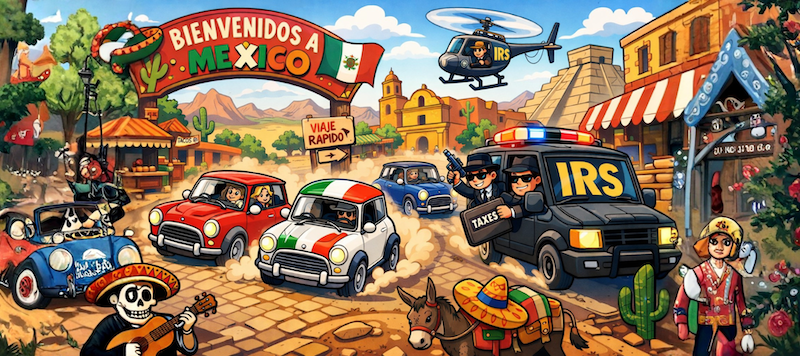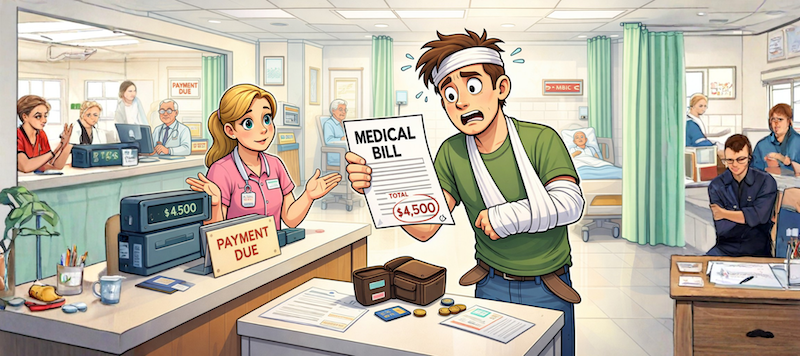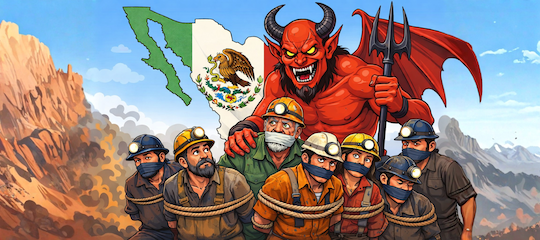Posted May 18, 2023
By Sean Ring
Rickards and DDB Unreserved About the Fed
- Jim Rickards thinks there may be a 25 bps hike in June.
- Danielle DiMartino Booth joined Jim on the livestream and talked about the Fed tightening into a recession.
- Will Powell hike, or won’t he? Unless much changes between now and the meeting, it looks like a hike is coming.
Good morning! I’ll be in Asti by the time you read this.
But I’m writing from Hartsfield Jackson Atlanta International Airport in the Delta Sky Lounge. I have another 3 hours to wait until I take off, so I thought I’d write now.
Yesterday’s Rude was about how a few of us at Paradigm Press are starting to think the Fed will hike again this June meeting.
That conversation took place right before Jim and Danielle’s livestream. But what’s interesting to me is what Jim and Danielle said about that very topic during the livestream.
Jim Rickards’ Managing Editor, Frank DeVechio, straordinario paesano, gave me a copy of the transcript before we departed from Jekyll Island. Thank goodness for Frank!
If you attended the livestream, this will help refresh your memory. If you didn’t, no worries! It’s tough getting time off at 1 pm on a Wednesday afternoon. We know that and totally understand.
So you don’t miss what Jim and Danielle said, it’s on the livestream below.
The Conversation
Danielle DiMartino Booth:
Because remember, at this juncture, any of Powell's three predecessors would've buckled under the pressure by now. And right now, there's what? There's a 23% chance that there's going to be another rate hike on June 14th. So it is business as usual. However, we're in a tightening regime, in recession.
We had revisions to January and February retail control that feed into the GDP calculus. That was an annual revision. We don't... Every time... We're chasing ourselves right now. We've had three months of revisions in a row to non-farm payrolls. That is a recession indicator, not lagging, but it tells you that we're currently in recession, and the Fed's tightening into it.
So we're in uncharted territory right now. And I would venture to say the closest corollary that you could draw right now, and I don't know, Jim, if you would agree with me or not, would be the double dip recession of the early 1980s.
Jim Rickards:
That has a lot of the characteristics, and it may be more true when going-forward basis. Not to get too far in the weeds, but Powell, right now, and the board, are facing one of the most critical decisions. Are they going to raise rates in June or not? They have a meeting on June 14th. Now Wall Street consensus is, they're done. The pause is in. Paul Tudor Jones was on TV the other day. Ray Dalio, like now this is it. Wall Street's putting out the message. The pause is in, they're not going to raise rates, so buy stocks.
And so Wall Street's punchline is buy stocks. I'm not so sure. I think they might raise rates in June. Now I'm not ready to put a stake in the ground and say that's definitely going to happen. By the way, we'll know before the meeting what they're going to do.
This is the no-drama Fed. Powell will leak it out. But we might not know until a few days before. The correct answer is the Fed doesn't know. It's not like they know, and they've got locked in a vault. We got to crack the safe. They don't know themselves. There is no consensus. When they say data dependent, they mean data dependent. So between now and then, we're going to get some data.
We're going to get a May employment report on June 2nd or June 3rd. We're going to have at least one more CPI, at least one more PCE, maybe two, before June 14th. And we'll have a pretty good read on second-quarter GDP. We won't have the final numbers until the end of July, but we'll have a good sense. And then a lot of other indicators, Danielle's referred to some of them. So they're going to look at all that data.
But are there warning signs? Absolutely. And Danielle's right about that. But, at the more superficial levels, like, hey, unemployment's the lowest since the 1960s. Atlanta Fed right now has got second-quarter GDP at 2.7%. So some of these things are depending on what indicators you're looking at.
And by the way, inflation's still around 5%. Now, they got it from nine to five. Nice job. But five's a far cry from two, and it gets progressively more difficult. Considering everything they've done. Volker was famous for raising interest rates to 20%, but he didn't do 5% in one year, which is what we've just seen.
So this curve, this rate hike curve, it's kind of a step, what was it? Greenspan. This thing goes parabolic. So enormous monetary tightening, reducing the balance sheet, not rolling over maturing securities. We see what's... Well, I mean banks, there are about a trillion dollars of losses not marked to market, but on all bank portfolios in the entire system, they're underwater by about a trillion dollars.
Now, they're not marked to market, it's not on the income statement, but that's a big loss that they've had to absorb as a result of... So with all that in place, inflation's still 5%, what do you got for an encore? Right?
And, to Danielle's point, it kind of looks like '80, '81, here's what happened then. Volker got in in, I think, in August 1979. He started raising interest rates almost immediately because that's why he was appointed, to do something about inflation. We had G. William Miller, who was possibly the worst Fed chairman ever.
And before that, you had Arthur Burns who was well regarded, but just put the pedal to the medal for Nixon's reelection and a lot else. So inflation was out of control, and Volker was there to stop it. But in the middle of that, there was a very sharp recession in 1980, about a year after Volker came in that had nothing to do with monetary policy. The card administration put a cap on interest that banks could charge on credit cards. So there's no better way to shut down the economy than say you can't use your credit. Well, the banks could stop issuing credit. It's not like individuals didn't want to use the cards, but the banks said, "We're not issuing you credit if we have to adhere to that cap," sort of like slamming on the brakes. So the economy crashed in 1980. So this is when farmers were surrounding the Fed with heavy equipment and driving tractors and steps and all that. So Volker cut…
Danielle DiMartino Booth:
That was very, very short. It was six months.
Jim Rickards:
Six months.
Danielle DiMartino Booth:
So until 2020, that was the shortest recession in US history.
Jim Rickards:
That's correct. But that's because Congress realized a mistake, the White House realized a mistake and they reversed course. So that recession had nothing to do with monetary policy. It was a regulatory blunder by the Carter White House. But Volker sitting there, chairman of the Fed, he's being like burned in effigy. He cut interest rates, seven points, not percent, not seven-tenths, but seven points to deal with the recession. He thought that was his job.
To this day, that's known as the Volker mistake. In other words, it wasn't mission accomplished. Inflation was not under control. The recession was there, yeah. But when he cut rates that much, the inflation came roaring back, and then his job was twice as difficult. So that's why it was in 1981, that interest rates hit 20%, and we went into the second recession that Danielle referred to. This economist debate, where is that back to back, or was it one big recession? Probably back to back is the correct interpretation. But that '82 recession that resulted from that, at the time, was the worst since the Great Depression.
Wrap Up
Jim and Danielle’s livestream was excellent. I hope you enjoyed this snippet.
I certainly did. I always worry if I disagree with Jim and Danielle.
Have a great weekend!

Investing is So Taxing!
Posted February 19, 2026
By Sean Ring

The Most Expensive Way to Go Broke
Posted February 18, 2026
By Sean Ring

The Bears Gather
Posted February 17, 2026
By Sean Ring

Omar Khayyam: Poet, Rebel, Astronomer
Posted February 16, 2026
By Sean Ring

The Devil in Mexican Mining
Posted February 13, 2026
By Matt Badiali

